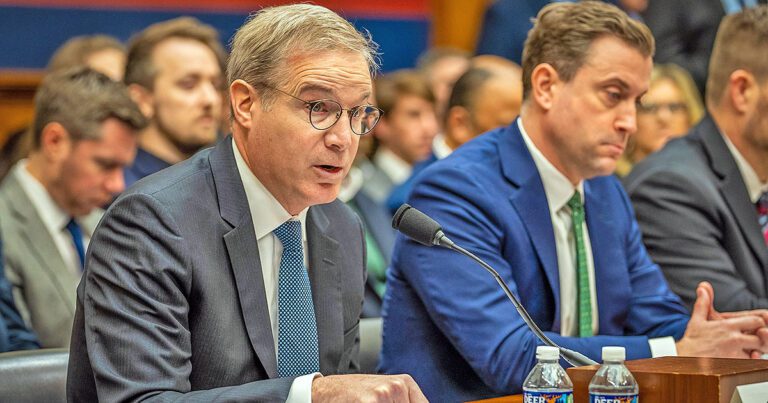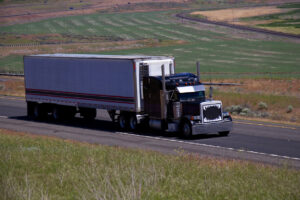WASHINGTON — American Trucking Associations President and CEO Chris Spear told Congress on Feb. 15 that the industry needed realistic national timelines and targets to reduce emissions, rather than allowing California and other states to drive standards.
“The trucking industry starts with ‘yes,’ Spear testified before the Senate Environment and Public Works Committee. “ATA worked with the Environmental Protection Agency, producing Phases I and II emission reduction rules, as well as the SmartWay Transport Partnership – which has been a model of public-private cooperation. To date, 98.5% of all emissions have been removed from our tailpipes. In fact, 60 trucks today emit what one truck emitted in 1988.”
Spear emphasized the gains — which include reductions of millions of tons of carbon, nitrogen oxide and particulate matter emissions — were the result of collaborative regulatory processes and realistic goals.
“This is not a debate about if we get to zero, but when.” Spear said. “We’ll get there, just not on the timelines proposed by California. By excluding our industry in a mad dash to zero makes their timeline and targets not only unachievable, but guarantees they will fail. To get to zero, we must be honest and transparent about the road ahead. Sourcing rare minerals needed for millions of 5,000 pounds of truck batteries, the infrastructure needed to charge them and the additional electricity needed to power our trucks – full scale – doesn’t yet exist and won’t if you allow California to set the nation’s standard.”
Spear said if California’s proposals are allowed to set targets and timelines for emissions reductions, it will certainly impact the industry and the supply chain – and Americans will feel those disruptions.
“Over the next decade, trucks will be tasked with moving 2.4 billion more tons of freight than they do today – the moment that slows or stops, Americans, your constituents, will want answers,” he said. “The responsible approach is also the realistic approach. Achievable timelines and targets matter. We’re committed to a cleaner environment – we’ve proven that. We simply ask that we be realistic about the path forward. Do that, and we’ll post the best environmental gains possible.”
The Trucker News Staff produces engaging content for not only TheTrucker.com, but also The Trucker Newspaper, which has been serving the trucking industry for more than 30 years. With a focus on drivers, the Trucker News Staff aims to provide relevant, objective content pertaining to the trucking segment of the transportation industry. The Trucker News Staff is based in Little Rock, Arkansas.











